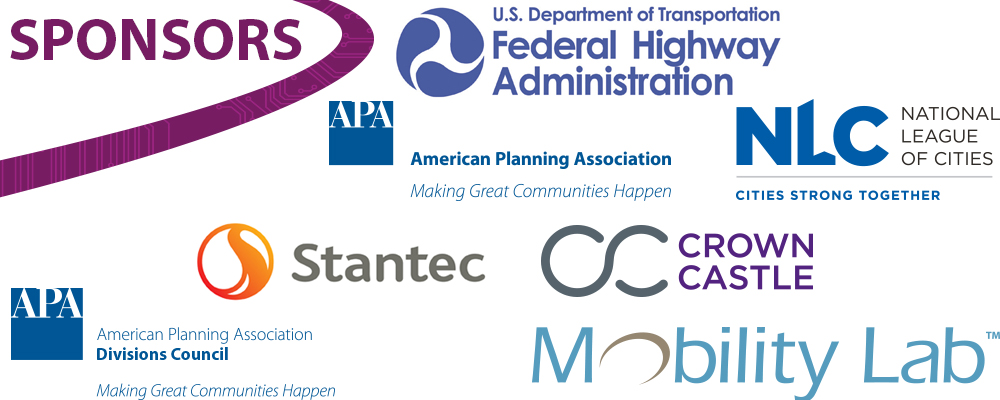Autonomous Vehicles: Planning for Impacts on Cities and Regions
On October 6, 2017, 85 of the nation's top thinkers on autonomous vehicles (AV) gathered at the National League of Cities (NLC) headquarters in Washington, D.C., to discuss and plan for the impacts of AV on cities and regions. This event — a collaboration between APA, NLC, Mobility E3, George Mason University, Mobility Lab, the Eno Center for Transportation, and the Brookings Institution — was convened to set the direction for future research, education, and other efforts by identifying policy needs to get cities and regions ready for a revolutionary new technology that will transform the way we think about transportation, transit, and land use.
Agenda
Research Reception & Networking
8:00 a.m.
Enjoy a light breakfast while networking with some of the nation's foremost thinkers on AV. Event emcee Kelley Coyner (George Mason University/Mobility E3) will get things started.
Welcome
8:30 a.m.
David Rouse, APA Managing Director of Research and Advisory Services, will open the event and invite Kenneth Petty, Director of Planning for FHWA, to say a few words on the federal perspective.
Opening Keynote
8:45 a.m.
Jeff Tumlin (Nelson\Nygaard) will set a forward-looking, visionary tone for the day's discussions by establishing a common ground for the status of autonomous vehicle technology and a vision of success for the day.
Moderated Discussion Panels
9:15 a.m.
-
Equity & Access: How can autonomous vehicle technology expand access to healthcare, employment, education, and recreation for users of all ages, abilities, and incomes? Panelists will address economic implications in terms of job loss and dislocation, environmental benefits, economic competitiveness, and equity.
-
Transportation Network: How will autonomous vehicles impact the transportation ecosystem? Panelists will discuss use cases, street design, transit, bike/ped considerations, freight, fiscal implications, and revenue.
-
Land Use & the Built Environment: What are the potential benefits and costs of widespread deployment of autonomous vehicles for cities and metropolitan regions? Panelists will discuss potential impacts on urban design and the built environment, regional land use, zoning, design standards, parking, etc.
Lunchtime Fireside Chat
11:45 a.m.
Brian Hoeft of the Regional Transportation Commission of Southern Nevada and Linda Bailey of NACTO will discuss a real-world AV project now on the road in Southern Nevada.
Scenario-Based Planning Exercise
12:45 p.m.
Kelley Coyner and Lisa Nisenson (Alta Planning + Design) will propose a scenario where active transportation, transit & technology (including AVs) work together on a platform of great community design to expand access and equity. Attendees will discuss and figure out ways to harness potential benefits of AV technology while also limiting potential risks.
Key Takeaways and Next Steps
3:00 p.m.
David Rouse and Jennifer Henaghan (APA Deputy Research Director), will summarize the key takeaways of the event and discuss the work that APA will undertake to follow up and act on the symposium.
Attendees
David Alpert, DC Sustainable Transportation
Muhammad Amer, ASCE
Max Azizi, Federal Highway Administration
Linda Bailey, NACTO
Adam Beck, Smart Cities Council Australia New Zealand
Torsha Bhattacharya, Rails to Trails Conservancy
Lauren Bradley, National League of Cities
Stephen Buckley, WSP
Terry Clower, George Mason Center for Regional Analysis
Kelley Coyner, George Mason University/Mobility E3
Terra Curtis, Nelson\Nygaard
Patrice Davenport, Transportation Research Board
Corbin Davis, FHWA
Eta Nahapetian Davis, Farifax County Government
David Dixon, Stantec
Adam Ducker, RCLCO
Nicole DuPuis, National League of Cities
Gerard Durr, Wilmington Trust
Caroline Egli, George Mason Center for Regional Analysis
Courtney Ehrlichman, Carnegie Mellon University
Daniel Emerine, D.C. Office of Planning
Corey Ershow, Lyft
Sharon Feigon, Shared-Use Mobility Center
Tom Fisher, University of Minnesota
Kate Garman, Crown Castle
Gulafshan Ghori, American Planning Association
Sheryl Gross-Glaser, CTAA
Darnell Grisby, APTA
Matthew Hardy, AASTHO
Corey Harper, Booz Allen Hamilton
Jennifer Henaghan, American Planning Association
Brian Hoeft, Regional Transportation Commission of Southern Nevada
George Homewood, City of Norfolk
Susan Howard, NADO
MacPherson Hughes-Cromwick, APTA
Rebecca Hunter, Crown Castle
Keith Jasper, Northern Virginia Transportation Authority
Howard Jennings, Mobility Lab
Tracye Johnson, Local Motors
Nikki Jones, Local Motors
Jason Jordan, American Planning Association
Joshua Karlin-Resnick, Nelson\Nygaard
William Keyrouze, AMPO
Jennifer Koch, Rhodeside & Harwell
Katherine Kortum, Transportation Research Board
Nico Larco, University of Oregon
Brian Laverty, Sabra Wang & Associaties
Matt Lesh, Coast Tech
Dalia Leven, AECOM
Paul Lewis, Eno Center for Transportation
Michael Lim, City of Los Angeles
Jana Lynott, AARP
Paul Mackie, Mobility Lab
Erik Marojobic, George Mason Center for Real Estate Entrepreneurship
Jacob Mason, Institute for Transportation and Development Policy
Christine Mayeur, Nspiregreen LLC
Amy McElwain, VDOT
Heidi Mitter, VDOT
Kimberly Moore, Go Together, Inc.
Dale Neef, DNA Data Solutions
Lisa Nisenson, Alta Planning + Design
Michelle Noch, FHWA
Mark Norman, Transportation Research Board
Terence O'Connell, CCM Real Estate
Ellen Partridge, Environmental Law & Policy Center
Kenneth Petty, FHWA
Richard Pruetz, Planning & Implementation Strategies
Robert Puentes, Eno Center for Transportation
Brooks Rainwater, National League of Cities
Anna Read, American Planning Association
Annibel Rice, The Brookings Institution
Matthew Ridgeway, Fehr and Peers DC
William Riggs, University of San Francisco
Justin Robbins
Greg Rodriguez, Best Best & Krieger
Greg Rogers, Eno Center for Transportation
Rachel Roper, AMPO
David Rouse, American Planning Association
Laurie Schintler, George Mason University
Dianne Schwager, Transportation Research Board
Spencer Shanholtz, George Mason Center for Regional Analysis
Egan Smith, FHWA
Ryan Snyder, Transpo Group
Richard Stein, Urban Decision Group
Jason Sudy, Side Street Planning
Aubrey Trinidad, ICMA
Jeffrey Tumlin, Nelson\Nygaard
Scott Turner, Nitsch Engineering
Stephanie Vance, Advocacy Associates
Kevin Vincent, Faraday Future
Rasheed Walford, Local Motors
Douglas Webster, Cisco
Norman Whitaker, Virginia Department of Transportation
Cheng Yan, FHWA
Erich Zimmermann, National Association of Regional Councils
Resources
Symposium Report: Preparing Communities for Autonomous Vehicles
This report summarizes insights gained from the symposium, including key issues for land use planning, transportation planning, and fiscal impacts. Included are detailed recommendations and helpful checklists on how to plan for AVs now as part of community visioning and goal setting plan making regulations, standards, and incentives; site design and development; and public investments. It also identifies future research needs and offers policy recommendations.
Research KnowledgeBase
Autonomous Vehicles Resource Collection
APA's Research KnowledgeBase connects APA members to curated collections of topically related resources — including plans, regulations, model codes, guidelines, articles, reports, and multimedia files. Each collection provides commentary and thematic groupings of resource records with bibliographic information, short descriptions, and links to the resources themselves. Each resource collection also has its own search tool for finding records that meet certain collection-specific criteria.
The autonomous vehicle collection summarizes the key challenges and opportunities associated with integrating self-driving vehicles into human settlements. It catalogs numerous resources that provide background research and policy guidance or demonstrate how local, regional, and state agencies are incorporating policy recommendations for autonomous vehicles into comprehensive or functional plans.
Symposium Video Recordings
Opening Keynote
Jeff Tumlin (Nelson\Nygaard) set a forward-looking, visionary tone for the day's discussions by establishing a common ground for the status of AV technology.
Equity and Access
Brooks Rainwater, Laurie Schintler, Jana Lynott, and Darnell Grisby considered how AV can expand access to healthcare, employment, education, and recreation for users of all ages, abilities, and incomes.
Transportation Network
Paul Mackie, Kevin Vincent, Stephen Buckley, and Paul Lewis discussed how AV will impact the transportation ecosystem.
Land Use & the Built Environment
David Rouse, Nico Larco, Lisa Nisenson, and David Dixon discussed the potential benefits and costs of widespread deployment of AV for cities and metropolitan regions.
Speakers, Panelists, and Moderators
Convening Organizations
American Planning Association
George Mason University/Mobility E3
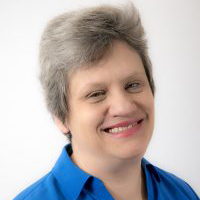
Emcee
Kelley Coyner
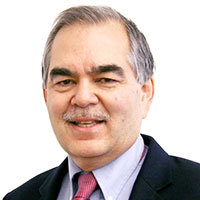
Moderator
David Rouse, FAICP
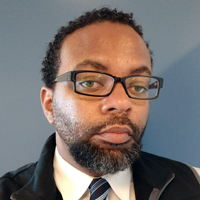
Speaker
Kenneth Petty

Keynote Speaker
Jeff Tumlin
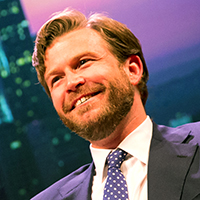
Moderator
Brooks Rainwater

Speaker
Darnell Grisby

Speaker
Jana Lynott, AICP
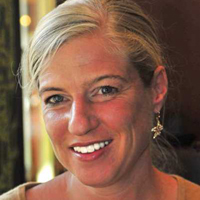
Speaker
Laurie Schintler

Moderator
Paul Mackie
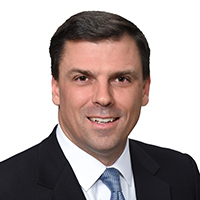
Speaker
Stephen Buckley, AICP
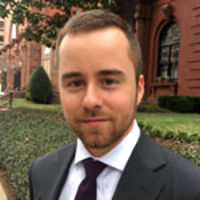
Speaker
Paul Lewis

Speaker
Kevin Vincent
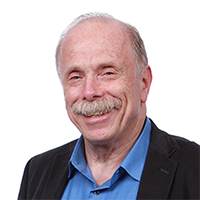
Speaker
David Dixon
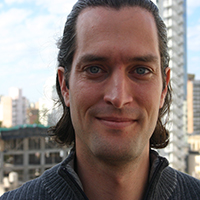
Speaker
Nico Larco

Speaker
Lisa Nisenson
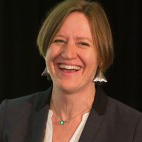
Speaker
Linda Bailey

Speaker
Brian Hoeft
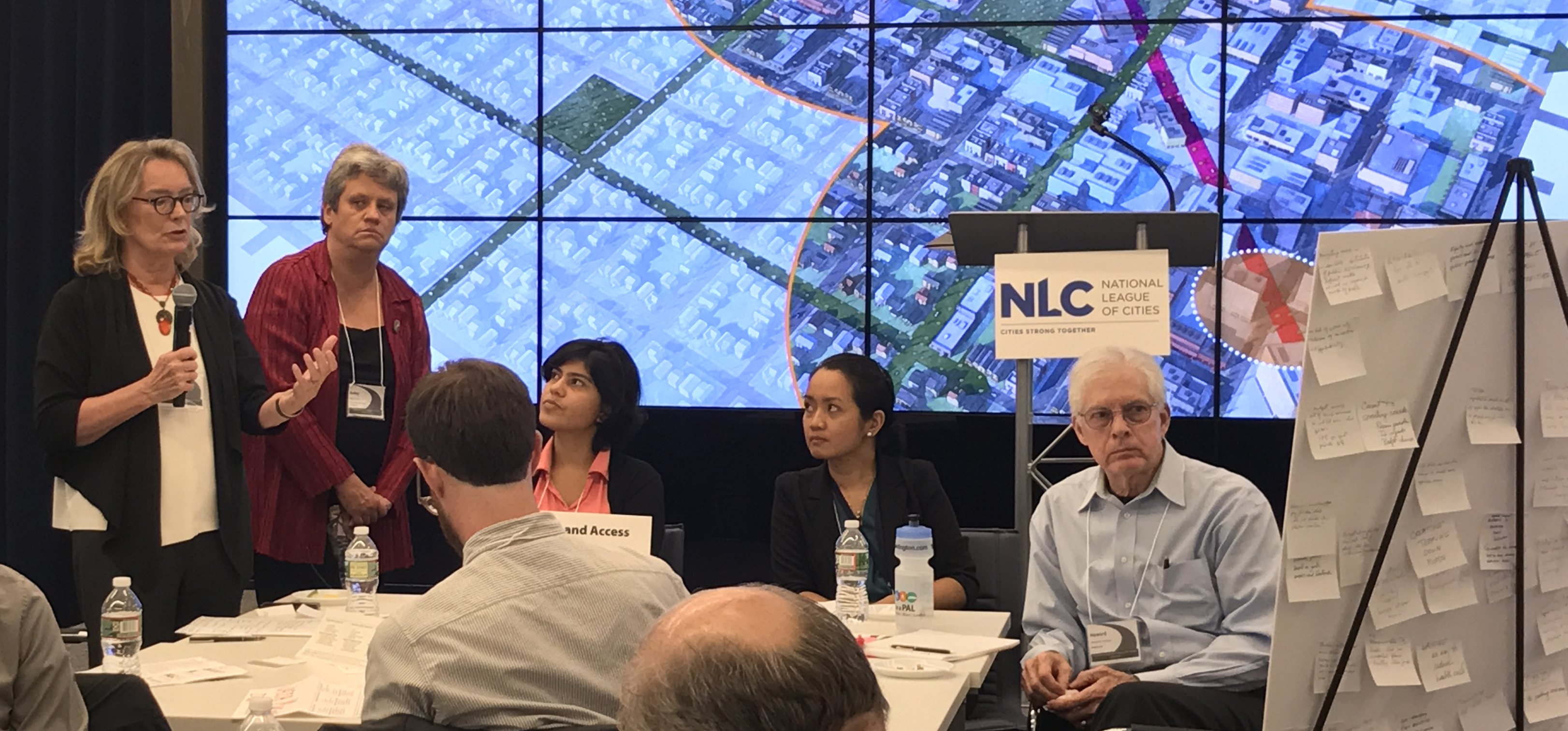
Symposium attendees participated in a highly-interactive scenario planning exercise.
Related Work
As momentum grows on Capitol Hill and among industry leaders for AVs, APA is working on a variety of fronts to help planners prepare and to ensure good outcomes for local communities. To help shape federal legislation and regulatory action on AVs, the APA Legislative and Policy Committee is working on a set of policy principles that was released in early 2018.
In December 2017, Zoning Practice focused on the likely impacts of autonomous vehicles on local planners. Author Don Elliott, FAICP, discussed the need to plan for a world in which the roads will be shared by AVs and non-AVs. It is available by subscription or individual-issue purchase.
In 2018, APA's Planning Advisory Service (PAS) will release a PAS Report on autonomous vehicles. This in-depth report by Timothy Chapin, Jeremy Crute, William Riggs, AICP, and Lindsay Stevens, AICP, will offer planning practitioners a detailed investigation of AV technology and the associated challenges and opportunities it poses for planning, the built environment, policymaking, and infrastructure. All APA members and PAS subscribers will be able to download the report for free, and non-members may purchase a PDF version of the report.
